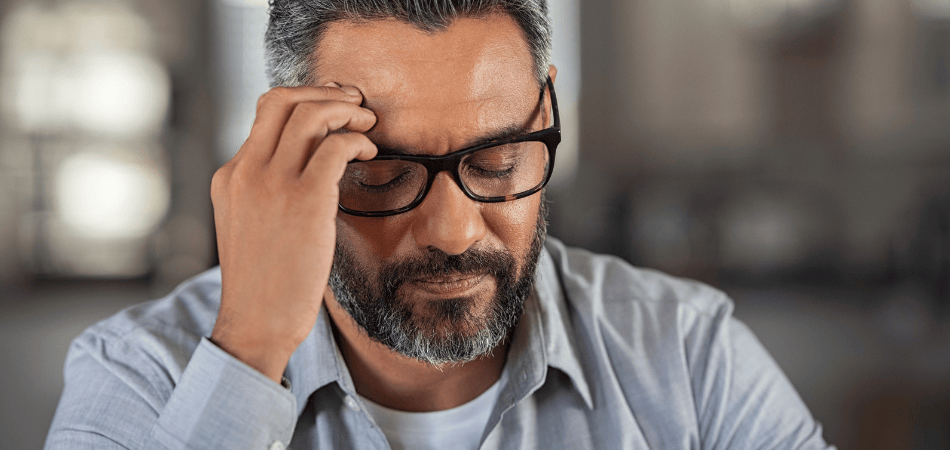
Written by:

Medically Reviewed by:
Last Updated:
February 14th, 2025
Ecstasy addiction
What is ecstasy?
Ecstasy, also known by its chemical abbreviation, MDMA, is a psychoactive drug that alters mood and perception. It’s known for enhancing feelings of emotional closeness, euphoria and heightened sensory awareness, making it popular at raves and parties. Ecstasy usually comes in tablet form but can also be found as a powder or capsule.
In the UK, ecstasy is classified as a Class A drug, meaning it is illegal to possess, produce or supply. The penalties for possession can include up to 7 years in prison, while supply or production can lead to life imprisonment.
Common street names for ecstasy include E, Molly, X, and Mandy.
Is ecstasy addictive?
Ecstasy can be addictive, though it’s more likely to cause psychological addiction than physical. With ecstasy, people can develop a psychological dependence, meaning they crave the emotional highs and feelings of euphoria the drug provides.
Physical addiction, on the other hand, involves the body becoming dependent on a drug, leading to withdrawal symptoms when it’s not used. Substances like alcohol or heroin tend to cause physical addiction because the body starts to rely on them to function normally.
In the case of ecstasy, users may feel the need to keep taking it to relive the same emotional highs, even though there isn’t a strong physical withdrawal process. This psychological pull can be just as powerful, making it hard to stop even when they recognise the harm.
How might an ecstasy addiction begin?
Understanding why an ecstasy addiction might occur is crucial because, for many, it starts as something social and fun, but over time, it can become something far more controlling. Many people believe they have full control when they first try ecstasy, but as with most substances, addiction can sneak up when they least expect it.
It’s important to take a closer look at how this happens, especially since the reasons can be far more complex than simply wanting to feel good. Below, we take at some, but not all, of the reasons an ecstasy addiction might begin.
Seeking connection
Ecstasy is often used in social settings like festivals, raves or parties where the sense of connection is heightened. The drug’s ability to make you feel more bonded with those around you can become addictive, especially for someone who struggles to feel this connection naturally. Over time, the need for that enhanced emotional closeness may drive repeated use, eventually leading to dependence.
Chasing the high
Ecstasy produces intense feelings of euphoria, happiness and energy that can be hard to replicate in everyday life. After experiencing these powerful emotions, it’s not uncommon to want to feel them again and again. What starts as occasional use can quickly evolve into more frequent use as the person chases that same high, leading to addiction.
Emotional escape
For some, ecstasy offers an escape from difficult emotions like anxiety, loneliness or depression. The drug’s ability to temporarily lift someone out of a tough mental space may be appealing, and in the short term, it can feel like a quick fix. However, this reliance on ecstasy to mask deeper emotional pain can lead to habitual use, eventually creating a psychological addiction.
Increased tolerance
With repeated use, the body becomes accustomed to ecstasy, meaning the same amount won’t produce the same effects as before. This can lead to a cycle of increasing the dose to achieve the desired feelings, putting the person at risk of dependency. What starts as something they feel in control of can quickly spiral into a situation where they need more and more of the drug to function.
Recognising these reasons is the first step in understanding how easily ecstasy addiction can take hold, often without the person realising it. The key is to spot these patterns early on and seek help before it becomes a full-blown dependency.
What are the signs of ecstasy addiction?
Understanding the signs of ecstasy addiction can be an important step in recognising if you or someone close to you might be struggling. Sometimes, these signs are subtle but being aware of them can make all the difference in catching an issue early or even preventing it from taking root. Since ecstasy doesn’t usually show physical signs of addiction, it’s the mental and emotional changes that are key to watch for.
By paying attention to these signs, you can take action before things get worse and offer the support needed to move in a healthier direction.
Psychological signs
- Intense cravings: A strong, uncontrollable desire to take ecstasy, often thinking about the drug frequently and feeling compelled to use it.
- Mood swings: Frequent and severe changes in mood, including irritability, anxiety or depression when not using ecstasy.
- Paranoia or hallucinations: Experiencing delusions, extreme fear or sensory distortions, even when not under the influence of the drug.
- Loss of interest: A noticeable decline in interest in activities once enjoyed, focusing instead on situations where ecstasy use is possible.
Obsessive thoughts: Preoccupation with obtaining, using or recovering from the effects of ecstasy.
Behavioural signs
- Increased social withdrawal: Avoiding family, friends or obligations to use ecstasy or recover from its effects.
- Risky behaviours: Engaging in dangerous activities while under the influence or taking higher doses despite the risks.
- Financial problems: Spending excessive money on ecstasy, often at the expense of other financial responsibilities.
- Secretive behaviour: Lying or being evasive about activities, whereabouts or the reason for declining social commitments.
Neglect of responsibilities: Failing to meet work, school or personal obligations due to the effects of ecstasy use.
How is an ecstasy addiction treated?
At Liberty House, we understand how challenging ecstasy addiction can be, and we’re here to provide a safe, caring environment where you’ll never feel judged. From the moment you arrive, you’ll be welcomed into a supportive community of people who understand exactly what you’re going through. Our compassionate staff, many with personal experience of addiction, are here to guide you with empathy and genuine care.
Your time with us will follow a structured routine to help you regain a sense of stability and purpose, which is key to preventing relapse. We’ll keep your days filled with meaningful activities, giving you the tools to create a positive and productive life once you leave rehab.
Beyond traditional therapies, you’ll have access to a range of holistic treatments like yoga, meditation, acupuncture and creative therapies such as art and music. These treatments are designed to help you heal in every sense—physically, emotionally and mentally. Our goal is to support you every step of the way, helping you move toward a healthier, happier life free from addiction.
If you or a loved one are struggling with ecstasy, know that help is just a phone call away. Contact Liberty House today and get the help you need to overcome an ecstasy addiction.
Frequently asked questions
(Click here to see works cited)
- Louisa Degenhardt a, et al. “Is Ecstasy a Drug of Dependence?” Drug and Alcohol Dependence, Elsevier, 15 Oct. 2009, www.sciencedirect.com/science/article/abs/pii/S0376871609003640.







